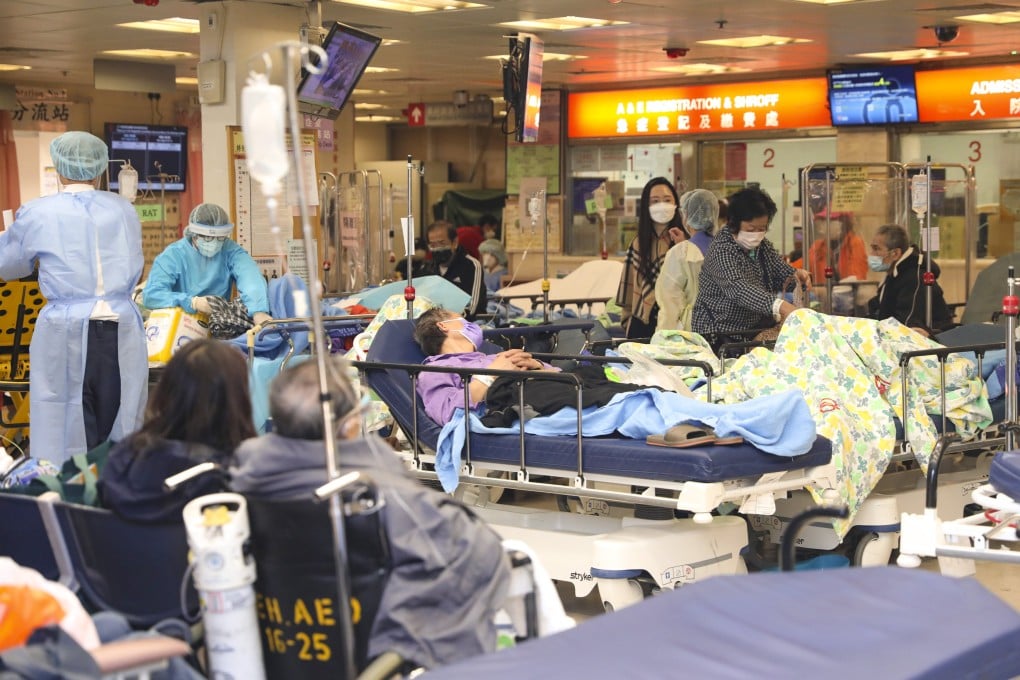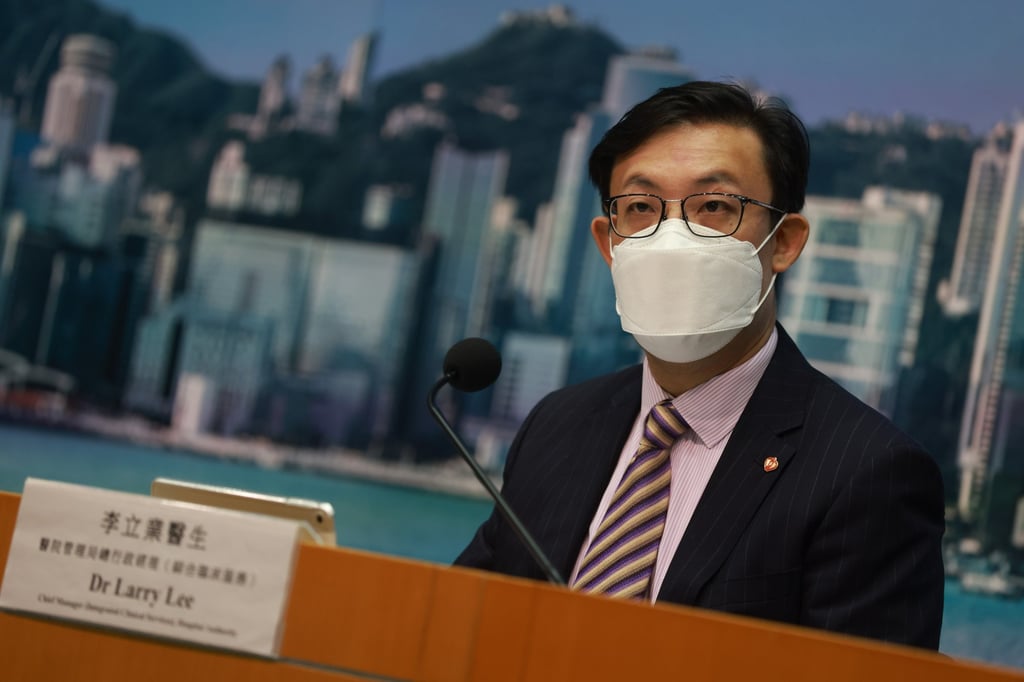Hong Kong to increase beds in public hospitals to 2,500 for Covid-19 patients, reschedule elective surgical operations to ease strain on healthcare system
- Hospital Authority says 2,500 beds in public hospitals to be reserved for Covid-19 patients, up from 1,200 previously, as rise in infections affects services
- Rising caseload could put pressure on efforts to contain the virus, with contact tracing for scheduled premises slowed down or not being done at all, health expert warns

Hong Kong will double the number of public hospital beds allocated for Covid-19 patients to 2,500 and reschedule elective surgery to ease the strain on the healthcare system, authorities have said, while an expert has warned the daily caseload could soon surge to five digits if Omicron subvariants became dominant in five to 10 weeks.
The city on Friday logged 4,270 coronavirus infections, including 180 imported cases, and six virus-related deaths. Hong Kong’s total Covid-19 tally stands at 1,313,224 cases, with 9,454 linked fatalities.
Health authorities said on Friday there were currently 1,257 patients hospitalised for Covid-19, including 177 new admissions, while 18 and 29 of them were in critical and serious conditions, respectively.

Dr Larry Lee Lap-yip, a chief manager of the Hospital Authority, said 2,500 beds in public hospitals would be reserved for Covid-19 patients, up from 1,200 previously, while the schedule for elective surgery would be changed.
“Adjustments to [the number of] beds have entered their second phase. The continuous rise in infections has affected the services of public hospitals,” he said. “The service adjustment will be mainly on the non-emergency services, namely the elective surgical operations.”
Lee said although public hospitals had made preparations in terms of manpower and beds, it was “inevitable that more non-emergency services will be suspended” as the pandemic developed. “We call on residents to not lower their guard,” he added.
More staff would be transferred to the North Lantau Hospital Hong Kong Infection Control Centre, where eight wards were already in operation and more would be opened, Lee said. The treatment centre at AsiaWorld-Expo, currently on standby, would be put into service if necessary.